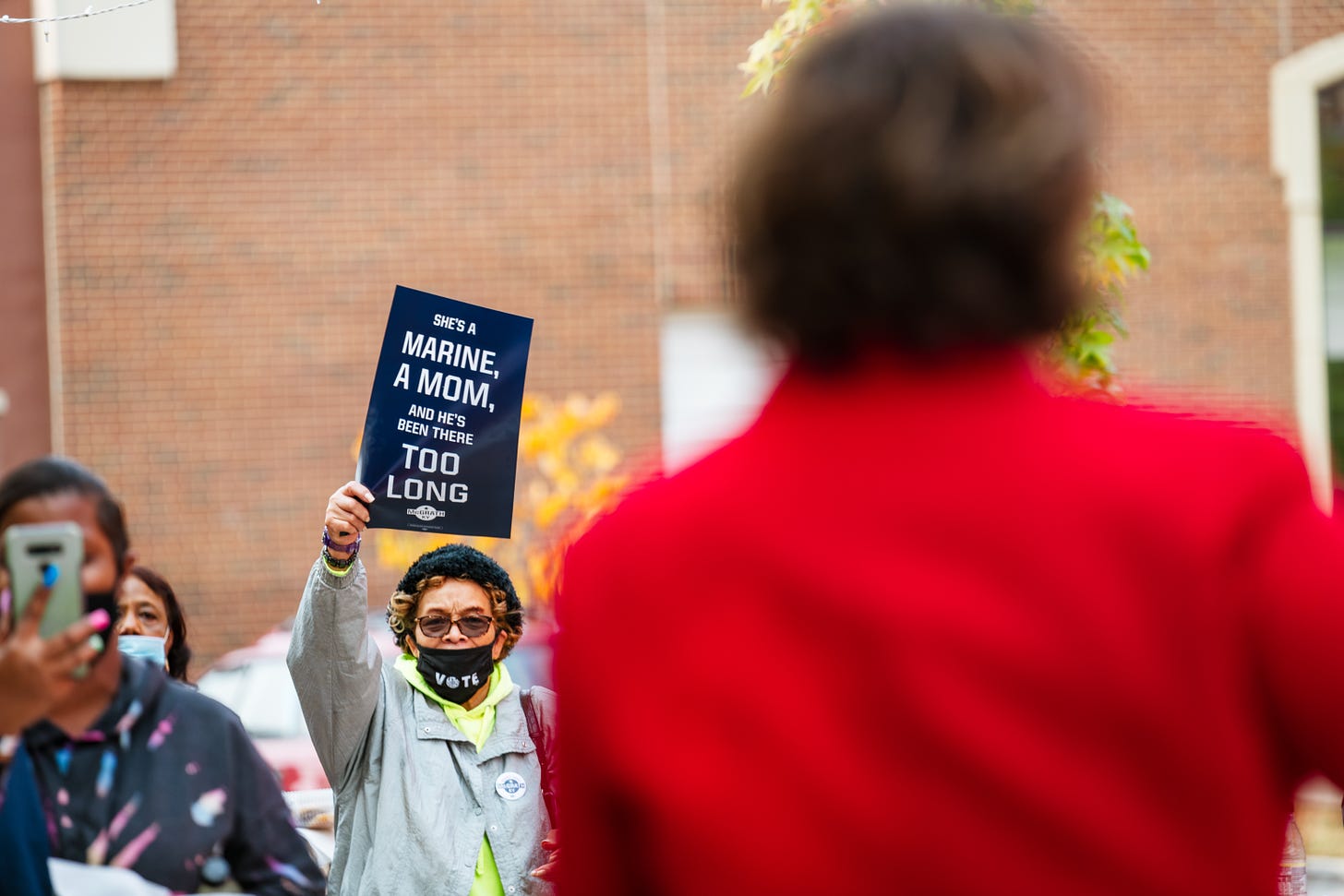This Week in the Mayonnaise Clinic: How Can I Avoid Wasting My Campaign Donations?
Plus: Are Democrats bad on taxes?
Dear readers,
You have questions, and I have answers. So let’s dig into the jar.
Mike Kidwell has a question about effective political giving:
I was listening to a podcast recently that was critiquing people who contributed to Amy McGrath's failed bid to take Mitch McConnell's Senate seat in the last election, saying that while it might have felt good to contribute to someone running against McConnell, it was not money well spent. This got me thinking (as someone who lives in a fairly blue district), wouldn't it behoove Democrats at the national level to provide a way for people in strongly Democratic enclaves to easily find and donate to races in other parts of the country where their contributions are most likely to help change a seat from red to blue?
Michael Sokolove wrote an excellent article for The New Republic last month about this issue: certain high-profile Democratic campaigns raising so much money that they can’t spend it in a way that wins them additional votes at the margin, and sometimes in races that were never winnable in the first place. Here’s Sokolove on the research:
David Hopkins is an associate professor of political science at Boston College who has written extensively about the American electoral system. “What we know from the academic study of campaign finances is that money is subject to a threshold effect,” he said. The threshold, he explained, is the point at which the money allows a candidate to run a “visible” campaign that establishes close to 100 percent name recognition, broadcasts a message, answers the other side’s attack ads, and deploys an effective field operation.
“Once you are past that point,” Hopkins explained, “the marginal return on additional dollars becomes very small. It may be helpful for a voter to see an ad three times rather than once. Or even 10 times. Once you are seeing it 25 times instead of 20, it probably won’t make a difference.”
As Sokolove noted, Democrats’ two biggest fundraising Democratic Senate candidates in 2020 were in solidly Republican states: McGrath in Kentucky, and Jaime Harrison in South Carolina. It’s no coincidence they were running against two of the top bogeymen in the Senate for politically engaged Democrats: McConnell, and Lindsey Graham, who shepherded Donald Trump’s judicial nominees as the chairman of the Senate Judiciary Committee.
Harrison raised $135 million and lost by 10 points. McGrath raised $94 million and lost by 20.1
Mike is right to look at this and see small donors pouring money down a bottomless hole. So what should they do instead?

I spoke about that with my friend Brian Derrick — Brian was a fundraiser for Democratic campaigns, but now he advises donors to Democratic causes and candidates on how to give money effectively.2 His business is premised on the idea that a lot of grassroots donors are committing significant funds to Democrats based on emotional appeals and they would benefit from strategic advice about where and when to donate that money to generate the largest impact — often, it’s to races they aren’t hearing about on cable news or Twitter. (I would note that Brian is a Democrat and he only advises Democrats, but many of these tips should apply symmetrically for Republican donors trying to maximize their effectiveness, too.)
“My number one tip for people is to plan an actual budget: a political budget for yourself so that you're not just donating in response to a tweet or a headline with outdated information or no information at all,” Brian says. Having a plan protects you against “rage-donating”: impulsively mashing the “give” button on an email that makes you angry about Donald Trump or Mitch McConnell, without thinking closely about whether the money is going toward something that will actually help your side win.
Once you have that budget set, he has three main tips about how to allocate it:
Keep reading with a 7-day free trial
Subscribe to Very Serious to keep reading this post and get 7 days of free access to the full post archives.


